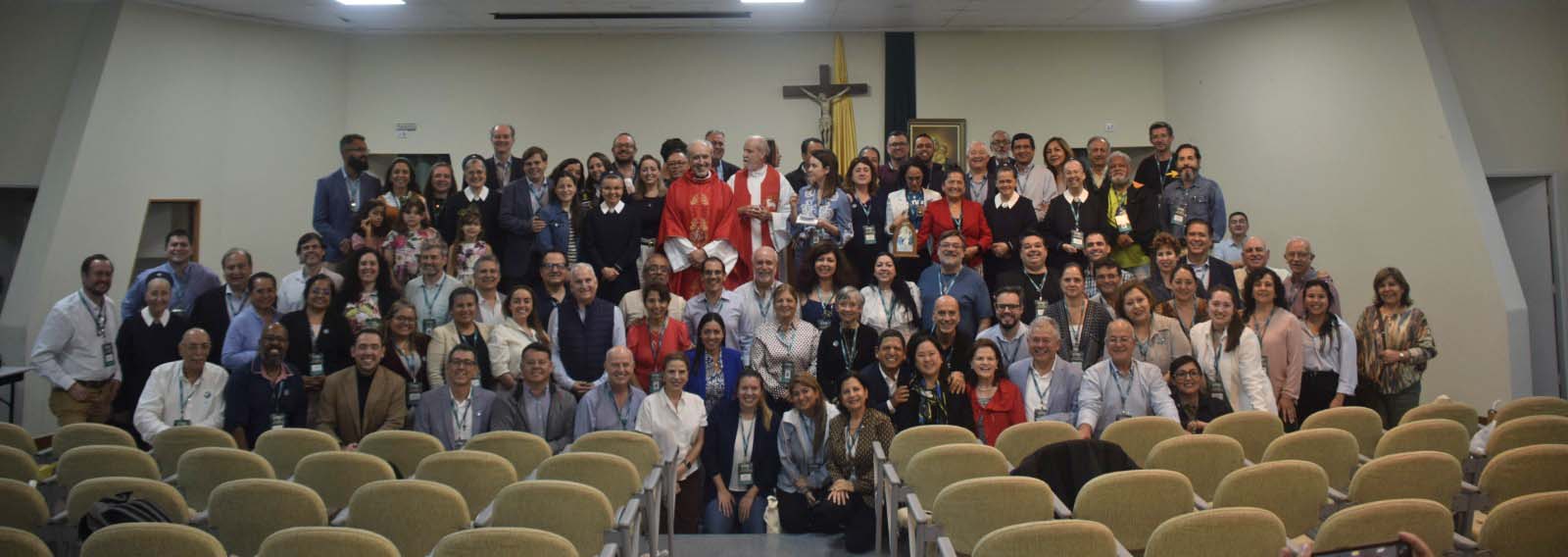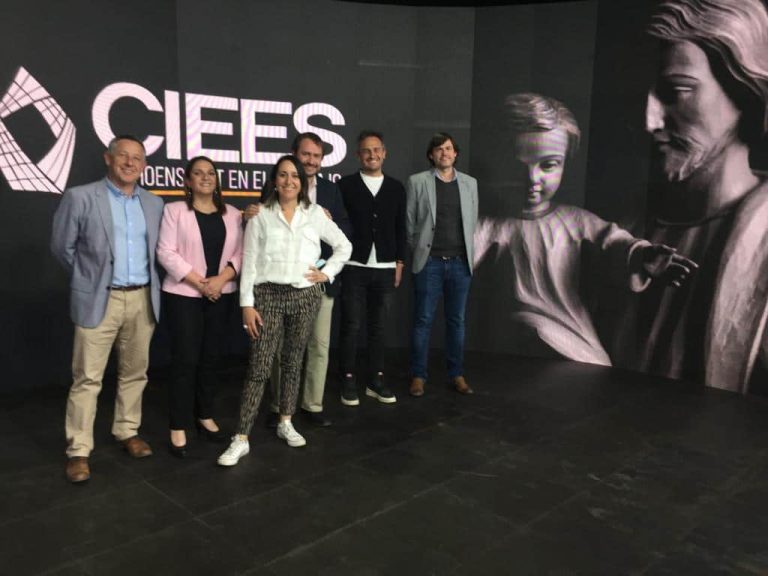A gathering that brought hearts together and gave a face to hope. For three days, the city of Atibaia, in the state of São Paulo (Brazil), hosted the 8th International Congress of CIEES (International Community of Schoenstatt Entrepreneurs and Executives). The event gathered business leaders, executives, entrepreneurs, and collaborators from more than ten countries for a common purpose: to strengthen their business, spiritual, and human mission.
The event, held from October 16 to 19, 2025, not only offered top-level conferences and panels, but also became a forum for prayer, testimony, encounter, and mission. Under the motto “Leading with humility. Enkindling with Hope,” participants were able to rediscover their mission: to live holiness in daily life and transform work into a source of hope.
Integrating spirituality into professional life
The encounter was especially aimed at businesspeople, executives, and entrepreneurs who wish to integrate spirituality into their professional lives and transform their work environment from a Christian perspective.
It was a unique opportunity to connect with leaders from different countries who share the same desire: to be instruments of change and hope in the workplace.
The congress was conducted with a dynamic and enriching methodology combining opportunities for reflection, themed panels, workshops, and moments of prayer.
Each stage was designed to promote active participation, exchanging experiences, and living Schoenstatt’s spirituality profoundly as applied to today’s professional reality.

“Leading with humility. Instilling hope”
We gathered at this International Congress to deepen a central belief that should characterize each one of us: we are not “Schoenstatt executives,” but “executive Schoenstatters.” Our mission is not to add Schoenstatt spirituality as a complement to our professional lives, but to allow it to be the source, the form, and the soul of our being and acting in the workplace.
“A Hero Today, Not Tomorrow!” cries the venerable João Luis Pozzobon
The program was carefully designed to guide us to that experience. From moments of prayer and fellowship to conferences and panels, everything revolves around the experience of practical faith in Divine Providence, which teaches us to see God in every particular circumstance, including business decisions, management challenges, and the human relationships we build in our work environments.
The different segments of the congress revolve around three pedagogical pillars:
— Humility and hope: humility places us before God as stewards and not as owners of the talents we have received. Humility impels us to recognize the need for Grace in our lives, to say “Nothing without You.” Hope, based on humility, makes us leaders who, even in the midst of economic and social crises, point out paths of trust and improvement, instilling in us the “nothing without us.” Thus, we learn to “put our talents at the service of our brothers and sisters,” as donkeys of the Lord, becoming leaders of hope.
— The exchange and fostering of attachments: it reminds us that human beings only flourish in community. The round tables and testimonies challenge us to create business environments that strengthen bonds of trust, solidarity, and cooperation. The workplace can and should be a place of encounter, not just competition and production.
— Commitment and action: each conference and each panel invites us to assume concrete responsibilities: translating ideals into projects, embodying Schoenstatt values in business culture, turning professional life into a path of holiness, and making everything a source of auto-formation. The congress does not intend to be limited to good ideas, but rather to generate a manifesto for future plans, a living manifesto that springs from the core of our movement: the Covenant of Love.
João Luiz Pozzobon: an inspiration to become leaders with humility and hope
Throughout the conferences, we have seen examples such as that of John Luiz Pozzobon, who knew how to combine faith and daily life, transforming humility and hope into concrete works. Through testimonies, workshops, and panels, we learned that Schoenstatt spirituality is not a burden or a distant ideal, but a manufacturer of saints in real life, a manufacturer of heroes that educates us to integrate prayer and administration, spirituality and strategy, a relationship with God and the responsibility for others.
In the exchange panels, entrepreneurs and executives shared how the Kentenich pedagogy becomes a driving force for transformative leadership. The pedagogy of trust manifests itself when we believe in people’s abilities and offer them the freedom to grow. Marian pedagogy inspires us to lead with kindness and firmness, entrusting our enterprises and decisions to Mary, who educates us so that we can become docile instruments in God’s hands. The panels will address practical issues, real-life experiences, concrete actions, things that have already been done, implemented, and experienced.
Manifesto 2025
The congress will culminate with the elaboration of a Manifesto 2025, a collective expression of our desire to achieve holiness in the workplace. This manifesto will not be just a document, but rather a commitment from all of us to spread the culture of the Covenant of Love in our professional environments and inspire new ICSEE communities and initiatives of hope. Engendering the new man in the new community.
In this way, all the conferences, panels, and meetings of the congress are connected with a single purpose: to form leaders rooted in the spirituality of the Covenant who live holiness in their daily lives as executive Schoenstatters.
With “our hand on the pulse of time and our ear to the heart of God,” through the virtue of humility, we will recognize our talents and gifts, and with the power of hope, we will put these at the service of our brothers and sisters, thus becoming leaders who build a future based on trust in God and the construction of a new society.
Translation: Maribel Acaron


